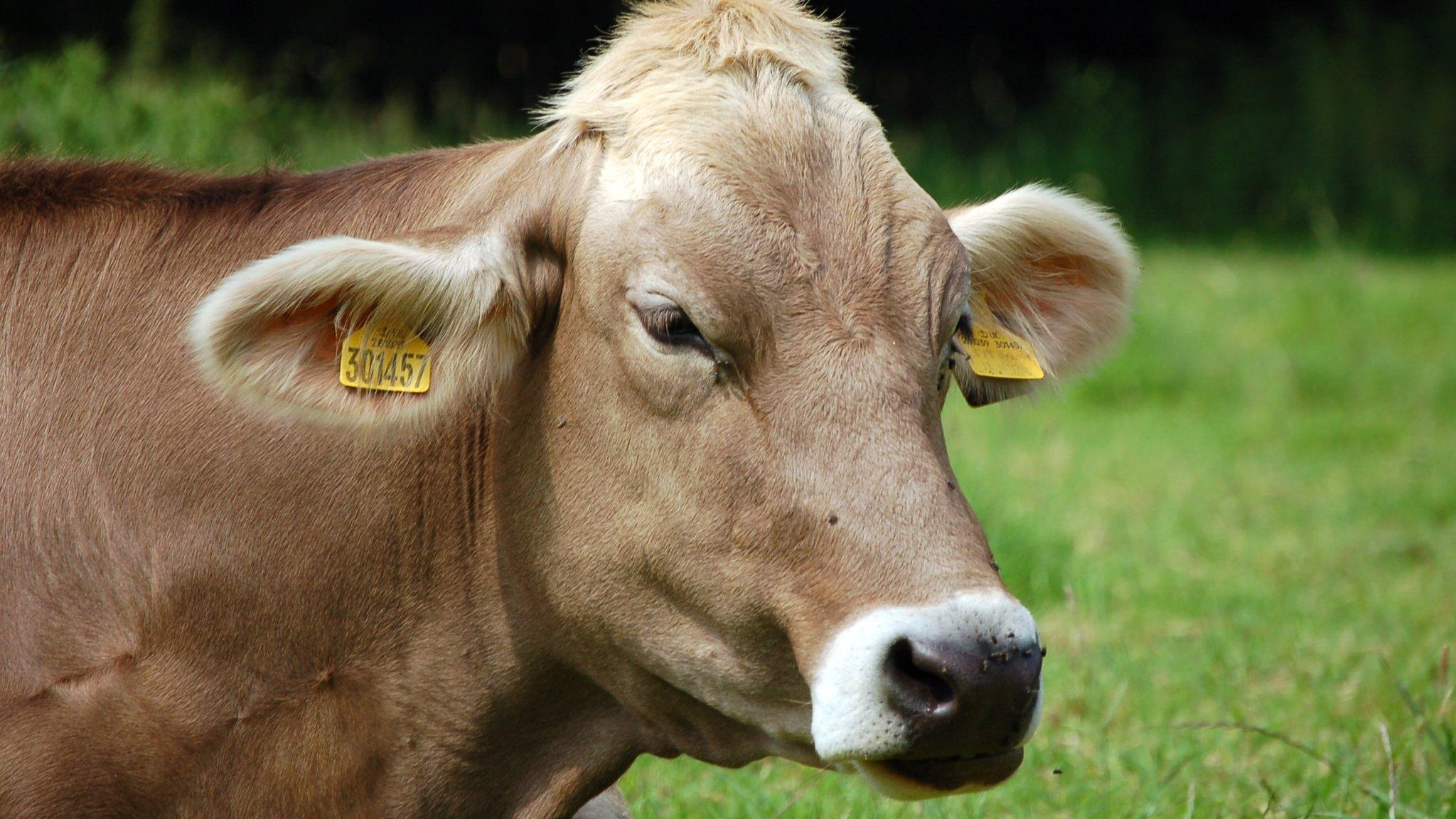Cambridge cows: Council u-turn over city centre's cow-grazing proposal
- Published
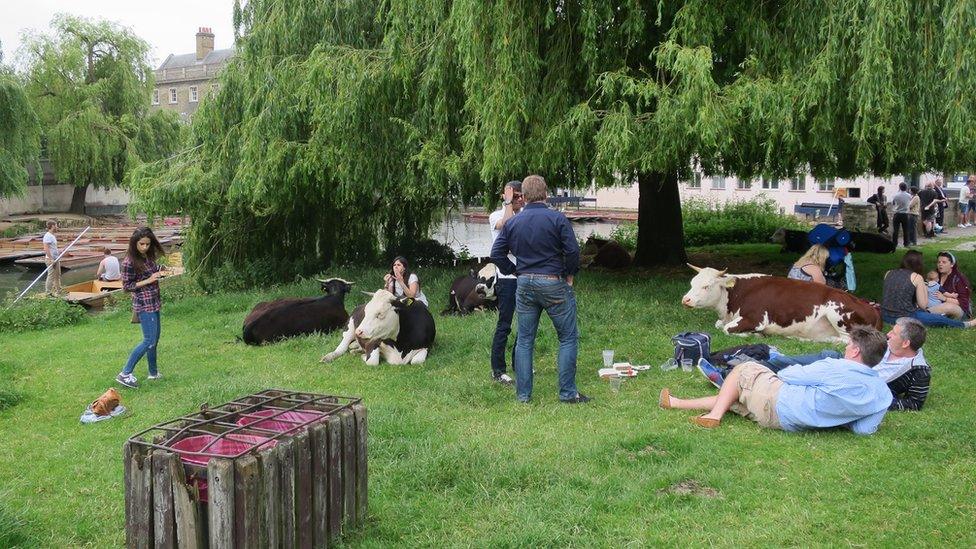
Cows are a regular feature of Cambridge's riverside commons, which extend into the heart of the city centre
A proposed council budget cut that raised doubt over the centuries-old tradition of grazing cows in a city centre has been scrapped.
Cambridge City Council had proposed an end to out-of-hours help for when there was an issue with the cattle.
A farmer expressed fears that no cattle graziers "can see how it would work" on the city's commons without the service.
Support will now continue after the proposal was removed from the budget at a council meeting on Thursday.
Cows are a regular sight for locals and visitors in the university city, and a "pinder" service is used for when there is a problem with the cattle - such as when they fall into a river.
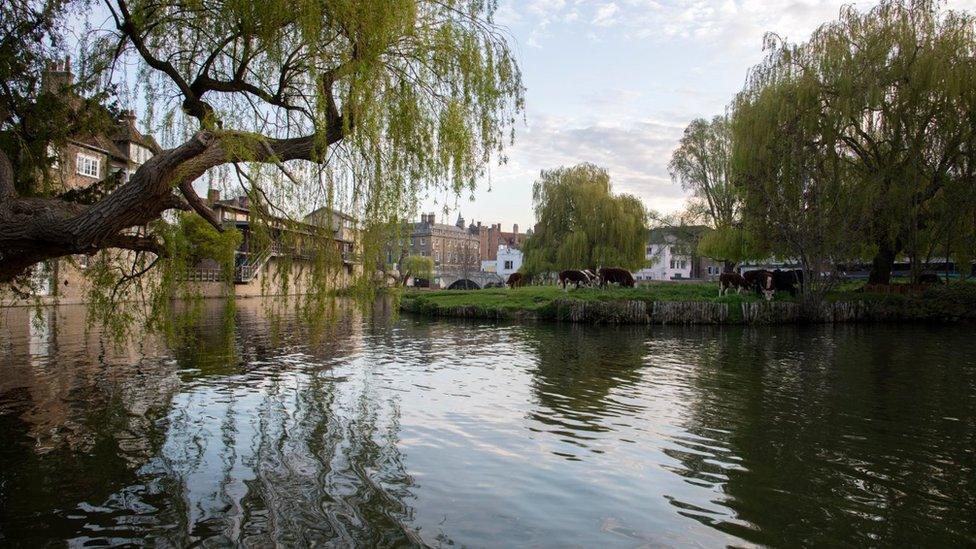
Grazing land extends from outside the city along the river to the Mill Pond, where cattle share the space with people including customers of The Mill pub
The Labour-led council had proposed ending the out-of-hours pinder service - transferring that responsibility to graziers - at a saving of £8,000 a year, according to the Local Democracy Reporting Service.
Angelika von Heimendahl, who has been grazing her animals on Midsummer Common for 15 years, said that without the service she doubted graziers would "take that kind of responsibility and that kind of risk" to let their cows roam.
She said graziers were against the change and had not been consulted.
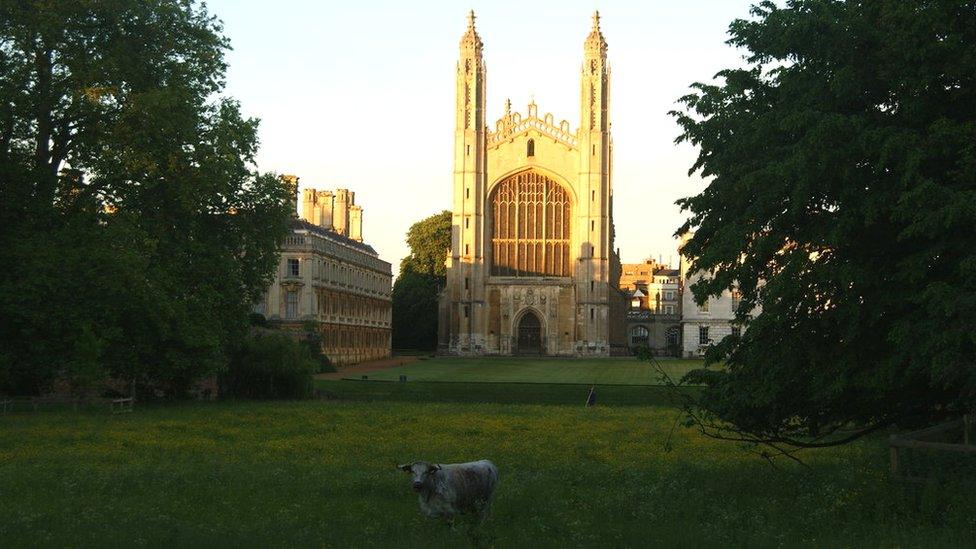
Land for grazing extends along The Backs where the River Cam flows past Cambridge University's colleges
Following an amendment from the Liberal Democrat opposition group, the proposed saving was removed from the budget before it was agreed on Tuesday.
The leader of the Liberal Democrat group, Tim Bick, welcomed the reversal, and noted it followed public pressure.
The council's executive councillor for planning policy and open spaces, Katie Thornburrow, said: "Having cows on the commons is a must and was always our intention.
"How we manage them is open to discussion, and the safety of cows and our residents has to be a priority consideration."
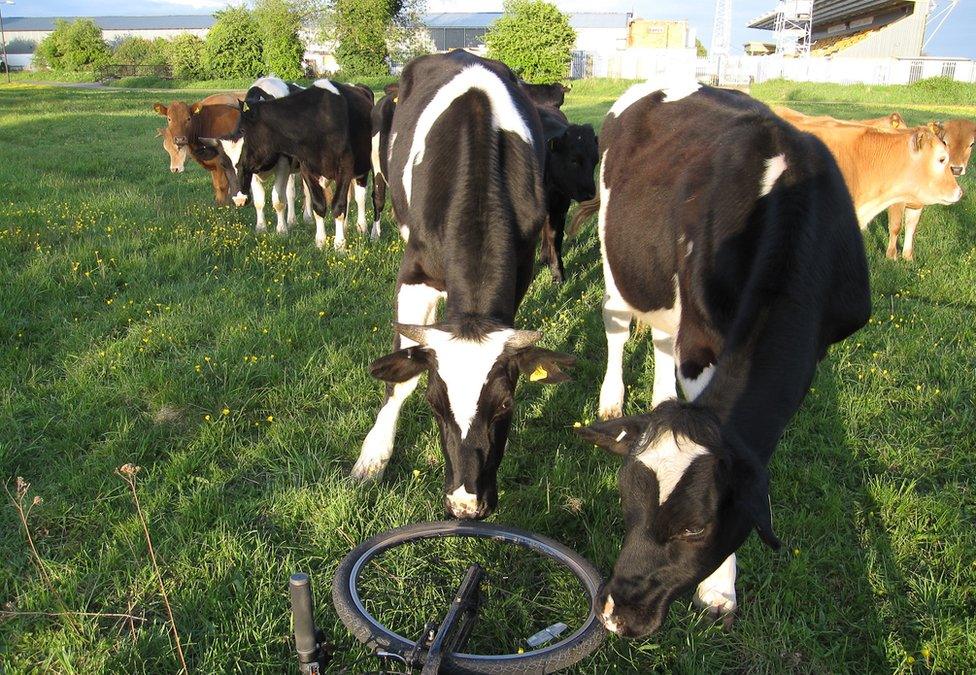
Cattle grazing on Coldham's Common - away from the city centre next to Cambridge United's Abbey Stadium
She said they consulted all graziers around the pinder service in February 2020 and it was agreed they would look at the out-of-hours service and how to contact the right person or organisation if something arises.
"It was with that agreement of the graziers that we proceeded with this idea," she said.
"Our team has been in contact with most graziers again recently, and learned more about their thoughts, and we have also talked to some of the residents.
"Going forward, we will be trialling different ways to communicate, start a dog control campaign, adapt and work with graziers so that we know that any changes work well for all concerned."

Find BBC News: East of England on Facebook, external, Instagram, external and Twitter, external. If you have a story suggestion email eastofenglandnews@bbc.co.uk
Related topics
- Published24 February 2021
